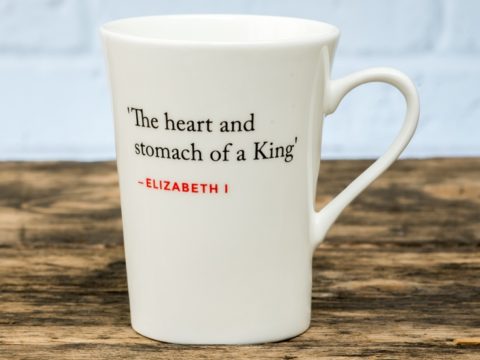Robert Dudley: Life Story
Chapter 8 : Earl of Leicester
For Robert, there could be no possible advantage in marrying the Scots queen, even if she would have him. He would be no more popular with the Scottish nobles than with the English, and would have no friends about him; he was not in love with Mary, whilst he was clearly personally attached to Elizabeth; he would be sent to a foreign country, which had frequently been at war with his own; and he would be accused of pride and presumption for even daring to think of marrying the Queen of Scots.
Elizabeth’s real intentions have been debated – did she really mean Robert to marry Mary, as a way of controlling Scotland; was it a ruse to encourage Mary to marry the apparently ideal Lord Darnley, whom Elizabeth may have known had such an unstable character that it could never end well; or was it simply an excuse for her to grant Robert his own earldom, on the pretext that it was to fit him for a queen?
Robert wrote to Queen Mary, assuring her that he would never dream of thinking himself a suitable husband for her, but, in fact, Mary was willing to consider the idea if Elizabeth would confirm that she would recognise Mary as her heir. Whilst Elizabeth came up with the idea that Mary, Robert and she could all live together – presumably an example of Elizabeth’s wit that was taken too seriously – she would not go so far as to nominate Mary as her heir.
If the intention was to trick Mary into marrying Lord Darnley, Elizabeth’s scheme worked. Meanwhile, Robert was created Baron Denbigh and Earl of Leicester on 29th September 1564 - the queen somewhat reducing the dignity of the occasion by putting her hand into his collar to tickle his neck. She had also granted him the superb castle of Kenilworth and extensive lands in Warwickshire. That year, he was also appointed as Chancellor of the University of Oxford.
As the mid-1560s passed, Elizabeth was no nearer marrying Robert or anyone else. It was handy for her to revive his hopes whenever foreign suitors seemed too importunate, but she would never commit herself to him. She vacillated in her treatment of him – often protesting her affection, yet other times making her complete control of him plain not just to him, but to others. ‘You are like my little dog’, she once told him ‘As soon as he is seen anywhere, people know that I am coming, and when you are seen, they say I am not far off.’
The queen also began to show favour to other men of the court – Thomas Heneage was one. Elizabeth’s attentions to him in the autumn of 1565 led Leicester to retire to his rooms for several days, perhaps genuinely hurt.
But two could play at the game of jealousy, and Robert began a flirtation with Lettice, Countess of Essex. Lettice was the grand-daughter of Elizabeth’s aunt, Mary Boleyn, and, as well as being considered one of the court beauties, was some ten years younger than the queen. The upshot was a furious row, that revealed, or so King Philip of Spain thought, on hearing of it, that Elizabeth truly loved Robert, and he might yet come to be her husband.
But the quarrels and coolness continued, and early the following year, Robert asked permission to withdraw from court, which Elizabeth granted. By mid-March, it appeared that Elizabeth was both pining for him to the extent of dramatic weight-loss, yet, was still angry with him. Robert returned, but within weeks another quarrel had broken out, and he departed again. He received a letter from the queen that, according to his own words to Nicholas Throckmorton, wounded him deeply. He reiterated his loyalty, but told Throckmorton that there seemed little point in him returning to the queen’s side.
Nevertheless, he wrote to her, talking of his despair at being parted from her. She relented, and, whatever passed between them, he was soon once again her chief friend and favourite.
Whilst the likelihood of Elizabeth marrying him receded, Robert was eager to influence her choice of another husband – promoting the 14-year-old Charles IX of France’s suitability over that of Charles of Austria, who were the front-runners in 1566 – such a choice would leave his influence unaffected – and by splitting the Council (Norfolk and Sussex were promoting Charles of Austria) it made Elizabeth’s marriage to anyone less likely.


